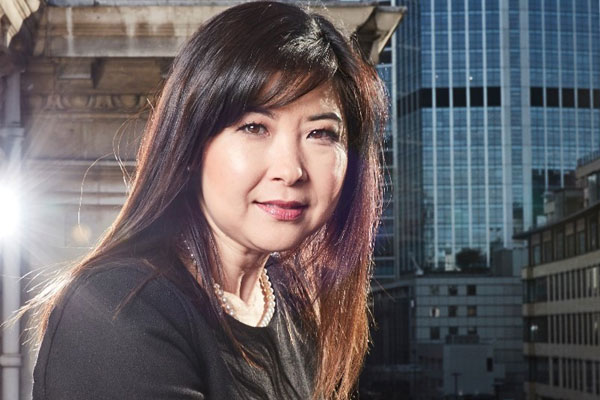
UAE moving forward in energy transition, says GBBC chief
ABU DHABI, September 12, 2019
The UAE government is moving forward in the energy transition sphere, said a blockchain expert at the ongoing World Energy Congress in Abu Dhabi.
"We’ve been here for two days now at the Congress, and there’s a number of different categories within the blockchain and energy space that are really quite exciting," remarked Sandro Ro, CEO of the Swiss-based Global Blockchain Business Council (GBBC).
When asked to comment on how emerging technologies can be harnessed for social and economic good, Ro said, "One is really at the fundamental people level."
"Its how people engage as consumers of energy and how they can work with each other, while also being able to connect with energy providers differently," she added.
Ro went on to note peer-to-peer exchange of energy that is taking scope across various countries, noting the importance behind direct people involvement in their energy consumption, and how they interact with the companies that provide the energy.
Peer-to-peer energy trading is a new and developing sector that offers persons the opportunity to access renewable energy sources as well as trade it, she stated.
"This peer-to-peer trading system empowers both the consumer and supplier, by utilising cheaper, environmentally sustainable energy, while also maximising the value of renewable energy investment," she added.
According to its 2018 Annual Report, the GBBC noted that the UAE "stands at the forefront of blockchain developments in the Mena region; the UAE government appears intent on becoming a regional and global leader in blockchain."
Talking to the Emirates News Agency, WAM, Ro said she was impressed by the Abu Dhabi National Oil Company's (Adnoc) innovative processes.
"We’re really impressed," she said, adding, "not only do they take the oil, and produce what we know as crude oil, but they’re also producing byproducts, and they’re also transporting those out and exporting them."
GBBC chief pointed out that Adnoc had managed to utilise blockchain solutions to streamline the information flow within the organisational process, yielding positive results.
"What is more important than anything else, is the fact that they recognise that they have de-risked systems," Ro said.
"This means that the systems are not only more efficient and save money, but they are also safer, she explained.
"If you could de-risk any system, I think we should be behind that. We’re impressed with what Adnoc is doing," Ro emphasised.
Commenting on the impact cybersecurity can have on the energy sector, she said that it is one of "a major concern."
"I don’t think anyone should discount how much of a concern it really is," Ro warned.
She emphasised the need for collaboration with government and institutions with critical infrastructure to work with organisations coming up with the latest cutting-edge security measures.
"But let’s face it, as we increase our load of data available how we secure that is now more important than ever," Ro stressed.
The GBBC CEO noted the role of governments and wider stakeholders in the energy industry’s future transition, reiterating the need for collaboration.
Ro explained that governments and institutions that are looking to help drive forward the business of blockchain and emerging technology in the energy industry need to provide the necessary support to overcome regulatory hurdles, with investments in workforce, experts and industry leaders required to move forward in the sustainable energy field.
She went on to affirm that the GBBC is actively working with several Middle Eastern countries, going beyond energy, including education technology.
"We’re just starting to engage in the UAE, and we look forward to coming back again," she added.







